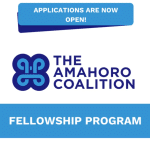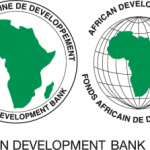There are tons of scholarship opportunities all over the internet. Many are particularly directed at young Africans and people from the developing countries around the world, and this is in part due to the fact that majority of the world’s youth population are in Africa and other non-african developing countries. By the year 2035, the bulk of the world’s youth population will be based in Africa, so there is a scramble to create opportunities for young people to get educated and gainfully employed, especially in other countries where their youth population is declining, so that they can stay back to contribute to the nation’s development.
Young people present an interesting prospect for the development of any nation. The abundance of opportunities does not rule out the aspect of competition, and this means that many young people still will be unable to access these opportunities due to some deficit in experience or education. This leaves others desperate, and, in their desperation – fuelled by their economic situation and the prospect of gaining international scholarship to access better economic opportunities, many young people fall victim of fraudsters. It is unfortunate to learn that while many countries, agencies, organizations and even individuals map out plans to make genuine opportunities available to young people, other organizations and individuals likewise, map out ways to exploit them.
An understanding of how genuine scholarships work gives one a clear understanding of how the fraudsters operate, and what to look out for so as to avoid falling for their cunning devices. If you are a scholarship seeker, this post is for you. It highlights six key things to look out to help identify fake scholarship opportunities. These truths could also be applied to help you identify genuine ones as well.
Here goes:
1. Fake scholarship agencies ask candidates to pay processing fee:
Let’s set this straight: no genuine scholarship-providing agency, government or organization will ask for money from their potential candidates. This is absolutely wrong and unethical. Scholarship providers – especially those that target a particular demographic group – typically want to offer equal opportunities to all who may be qualified, so they ask no fee and leave every applicant to decide their fate through the quality of their applications. However, there are some exceptions. Some scholarships are only tenable when a candidate has been awarded admission, and as such, such candidate must complete the application for admission separately – which may include payment of an application fee directly to the university. In some cases, genuine agencies inform the candidates that some of their partner universities request an application fee from all applicants to process admission; and that if their chosen university is one of such, they will have to pay the University’s specified application fee, directly to the university or as instructed. If you are applying directly for a school’s scholarship, they sometimes expect you to finish the admission process first, and ask if you will like to be considered for scholarship! Any so-called scholarship that is advertised and requests applicants to pay a certain sum to a certain account number is 99% fake and should be avoided. For this reason, the world’s most prestigious scholarship providers like MasterCard Foundation, Chinese CSC and Schwarzman Scholars usually send out warnings during scholarship processing periods, informing the general public about the activities of fraudsters acting as agents on their behalf, who are only intent on swindling unsuspecting and desperate candidates. They maintain that they do not authorize any third-party agents to act on their behalf, and that they do not request an application fee payable to them.
2. Shabby website, no institutional email, no positive reviews
One of the most effective ways to spot fraud in the world of scholarships is to pay attention to detail. Fraudulent scholarship agencies do not have a typically standard website, and this is deliberate. If any fraud transaction is linked to them, they want to leave as little detail as possible out on the internet so as to not get caught. They may put loads of pictures and letters, but no real content. Furthermore, none of their claims on their websites are verifiable. In many cases they are plagiarized content from other scholarship websites.
The internet (especially social media and education forums like www.afterschoolafrica.com, www.scholars4dev.com, and www.mastersportal.com) is a good place to get information about scholarships and reviews. It is advisable to run an internet search on any scholarship opening before you commit to it. When you run an internet search on a fake scholarship, hardly will you see any positive review about them. There are fraudsters, human traffickers and kidnappers posing as legit organisations.
3. They have no clear affiliations with Universities
Genuine scholarship-giving bodies usually have a number of partner universities and colleges that offer admission to people who scale through the scholarship screening. They typically display information and links about their partners on their website. In fact in some cases, the university themselves have a page dedicated to them on their website. For instance, every partner of the MasterCard Foundation has a dedicated MasterCard Foundation page on their website. Fraud agencies do not have this. They may mention some universities in the writeups on their websites, but there is nothing concrete to indicate an official partnership between them and the universities they mention. They tend to talk more about the opportunities they are affording, and less about their partners.
4. What they offer sounds too good to be true
If what they offer sounds too good to be true, then most times it is actually too good to be true. How can a private scholarship agency tell candidates that they will provide free admission to the best universities in any country, visa support and processing, flight ticket, subsistence allowance, stationery and health insurance, free accommodation, free vehicles for mobility, monthly stipends, and a good job after graduation? All for free?! if they had it so easy, they would make it happen for their loved ones first before putting it out to strangers on the internet. When it looks so sweet, check it. Go online to verify their claims.
5. There is no clear vision or mission
This is perhaps one of the most subtle indicators of a scam scholarship opportunity. Where there is no vision, there is usually no provision. The world’s top scholarship granting bodies have clear vision and mission statements that guide their scholarship scheme, which they usually indicate on their website. For instance, the MasterCard foundation has a strategic vision to provide access to quality education for economically-marginalized youth in Africa. To do this, they partner with several top universities within and outside Africa, to provide world-class education, financial and career support, and access to a world-class network of professionals. Their goal is to do this for a period of ten years, effectively empowering the continent’s next generation of leaders. You see this? Clear cut vision, clear plan of action, specified target population, and a timeframe for intervention. The same goes for the Chinese CSC Scholarships, Schwarzman Scholars, and a host of others. Every genuine philanthropic initiative has a strong vision behind it, and one of the reasons why the aforementioned scholarships have become as popular and sustainable as they are is because they have a vision driving their operations.
When an organization or agency rolls out scholarship schemes without a clear vision or mission, they are mostly neither genuine nor sustainable. In fact, scholarship providers like to promote the vision for their scholarship, and they often welcome awardees into their fold as mentors to succeeding generations of awardees, or as ambassadors for the organization.
6. They are unusually flexible with deadlines and requirements
What genuine scholarship agency will tell Nigerian candidates, for instance, that they can gain admission and full scholarship to a top global university like the University of Cambridge, with a NABTEB certificate or NCE qualification? None! Perhaps it sounds absurd, but there are fraudulent agents posing as university representatives with a fine suit, tie and accent, milking desperate and ignorant young people and their parents of their hard-earned money, with the promise of scholarships that are non-existent. In their opinion, qualifications like NABTEB and NCE are equivalent to the WAEC or NECO requirements; but in international admissions, this is not true.
Note this; genuine scholarships have strict deadlines that must be followed, and strict instructions that must be adhered to.
Top scholarship applications go like this:
- Candidates register on the online platform
- Eligibility is determined
- Application is completed
- Supporting documents are submitted
- Candidates wait for feedback
All within the stipulated deadlines.
In most cases, they inform candidates that applications that are submitted after the stipulated deadline will no longer be attended to. They also adhere strictly to the requirements and supporting documents that are requested. Any candidate that fails to meet up to their full requirements is usually automatically disqualified. However, on the other hand, scam opportunities never portray such discipline and excellence.









